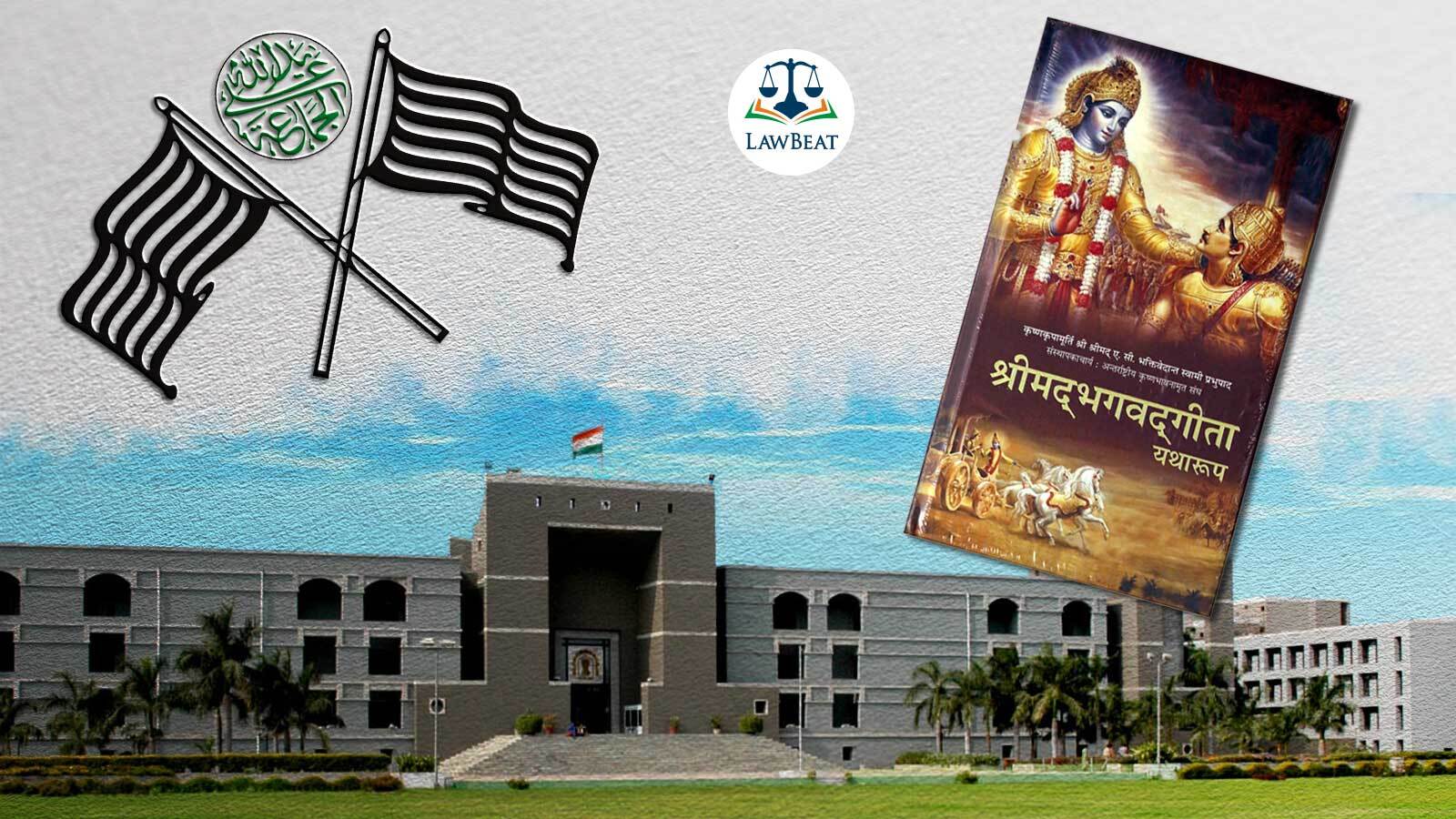Gujarat High Court seeks State Govt's reply in plea by Jamiat Ulama-e-Hind challenging mandatory Bhagavad Gita learning in schools

While refusing to entertain Jamiat Ulama-e-Hind’s request for a stay on the resolution’s implementation, a division bench of Chief Justice Aravind Kumar and Justice Ashutosh J Shastri sought the State government’s reply by August 18, 2022.
The Gujarat High Court on Monday issued notice to the State and Central governments in public interest litigation (PIL) filed by Jamiat Ulama-e-Hind (JUEH) challenging the State Department of Education's decision of mandating Bhagavad Gita learning for students in classes 6 to12 in the upcoming academic year.
While refusing to entertain Jamiat Ulama-e-Hind’s request for a stay on the resolution’s implementation, a division bench of Chief Justice Aravind Kumar and Justice Ashutosh J Shastri sought the State government’s reply by August 18, 2022.
According to the petition, the resolution was an illegitimate exercise of power, in violation of Articles 14, 28, and other fundamental rights, as well as a violation of the constitutional principle of secularism.
JUEH further contended that the resolution violated Article 28 of the Constitution, which states that no religious instruction shall be provided in any educational institution wholly supported by state funds.
Counsel appearing for JUEH, Advocate Mihir Joshi stated that the values and principles of Indian culture and knowledge can undoubtedly be prescribed in the school curriculum, but "the question is whether it should be done by giving primacy to the values and principles of only one religion's holy book." It was argued that the question is whether one holy book can be prescribed in this way.
JUEH expressed concern that educating students in only one religion would indoctrinate young impressionable minds with the superiority of one religion over others, affecting the exercise of free choice and conscience guaranteed by Articles 21 and 25.
Joshi further claimed that the resolution was based on the principles of the National Education Policy (NEP), but the NEP did not mandate the teaching of the Gita or any other holy book.
It was added that faith-based value education also contradicts the constitutional goal of promoting specific temper, humanism, and the spirit of inquiry, as stated in Article 51 A (h) of the Indian Constitution.
Furthermore, Joshi submitted that the resolution gave preferential treatment to one religion over others, which violated constitutional morality.
Accordingly, Joshi sought a stay on the resolution's implementation, claiming that the direction given to the Gujarat Council of Educational Research and Training (GCERT) to prepare a curriculum for the purpose is without jurisdiction and in violation of statutory provisions.
However, the bench declined to grant the stay and listed the matter for further hearing on August 18, 2022.
